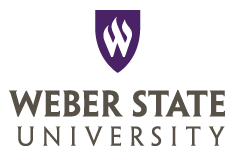|
PPM 9-1, Academic Freedom/General Principles |
|
|
Responsible Office: Academic Affairs |
1.0 PURPOSE
This policy identifies general principles regarding academic freedom.
2.0 GENERAL STATEMENT
Weber State University seeks to provide and sustain an environment conducive to sharing, extending and critically examining knowledge and values and to furthering the search for wisdom. Effective performance of these central functions requires that faculty members be free to pursue and teach the truth in accord with appropriate standards of scholarly inquiry.
The faculty's rights, privileges and protections, including that of tenure and academic freedom, rest on the mutually supportive relationship between the faculty's special professional competence, its academic freedom and the central functions of the University. These relationships involve not only the rights of the faculty but also serve as the source of the professional responsibilities of faculty members. University policies and procedures attempt to provide a mechanism whereby academic freedom may be protected; the highest standards of teaching, research and scholarship may be maintained; and the mission of the University as an institution of higher education may be advanced.
Academic freedom and academic responsibility are desirable in themselves. They also serve a public need as demonstrated in the following excerpt which is based on information in the Encyclopedia of the Social Sciences (1968):
"The justification of academic freedom must be sought in the peculiar character and function of the university and university scholar. The scholar's function is to lead in the discovery and promulgation of knowledge, and the multiplication of colleges and universities in modern times and expansion of their activities testify to the importance attached to this function. But the faculty's performance of this function is hampered or frustrated and their usefulness diminished if their inquiries are restricted in their range by religious, political or economic pressures; if they are not allowed to communicate their results freely to others; or if they have to color or qualify their honest opinions through deference to powerful prejudices or special interests outside the world of science or scholarship.
Hence, a society that believes that its stability, prosperity and progress are dependent upon the advance of knowledge and establishes colleges and universities for this purpose, is patently inconsistent if it denies to these institutions the freedom that they must have if they are to fulfill their nature and function.
Academic freedom exists then not to serve the interests of the faculty but for the benefit of the society in which they function, ultimately the community at large."
Academic freedom in the pursuit and dissemination of knowledge through all media shall be maintained at Weber State University. Such freedom shall be recognized as a right of all members of the faculty whether of tenure or non-tenure status, of all administrative officers and of all students. The University endorses that portion of the 1940 AAUP "Statement of Principles on Academic Freedom and Tenure," which is as follows: "The faculty are entitled to full freedom in research and in the publication of the results, subject to the adequate performance of their other academic duties, but research for pecuniary return should be based upon an understanding with authorities of the institution."
The faculty are entitled to freedom in discussing their subjects, but they should be careful not to introduce in their teaching controversial matter which has no relation to their subject.
College or university faculty are citizens, members of their learned professions and officers of educational institutions. When they speak or write as citizens, when acting outside the scope of employment, they should be free from institutional censorship or discipline, but their special position in the community imposes special obligations.
As persons of learning and educational officers, faculty should remember that the public may judge their professions and their institutions by their utterances. Hence, faculty should at all times be accurate, should exercise appropriate restraint, should show respect for the opinions of others, and should make every effort to indicate that they are not institutional spokespersons.
Revision History
Creation Date: 3-74
Amended: 12-23-98

